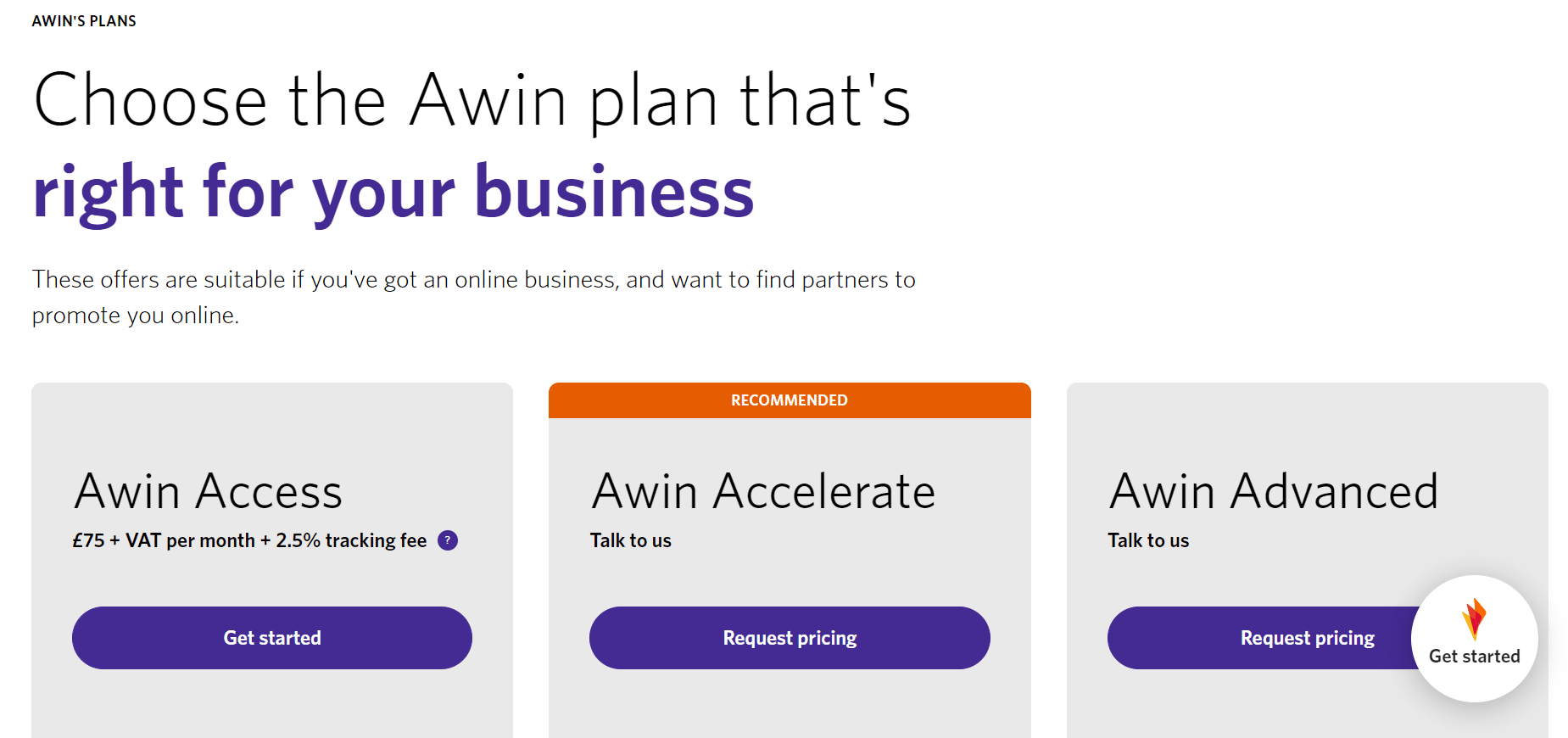The Ultimate Guide to Finding Profitable Affiliates
Written by Emma Sharp on 17 minute read
There are plenty of high-quality affiliate publishers out there and they are ready to help you promote your business and products.

Here we will cover how and where to find affiliate publishers, including how to carry out competitor analysis to boost your chances of success. Finding profitable affiliates who also suit your brand can be challenging, but with a little research and effort, you will be able to recognise them.
Adding a link to your affiliate programme on your website is always a good start to attracting suitable affiliates. However, like your product, this link won’t promote itself, or decide which affiliate will bring in the most sales. Like any other selling opportunity, it takes work. The effort will pay off in the long term, as gaining profitable affiliates allows you a direct route to their audience.
It’s important to note that profitable affiliates are often highly sought after and can carefully select who they work with. Let’s look at the most effective techniques to not only contact profitable affiliates but also ensure they want to work with you to promote your product.
Where to find affiliates
From going directly to your customer base to investigating your niche across social media platforms, there are many strategies for finding potential affiliate partners. Here are some of the most effective ones:
Finding affiliates via social media, online forums and search engines

Social media is one of the easiest ways to spread the word about anything and is faster than traditional methods. It’s important to assess the platforms that suit your business to have brand-based accounts. It’s also necessary to determine how valuable these could be to you and how much time you have available to post consistently. No matter the size of the business it’s often wise to use these parameters to establish a brief social media strategy. This may not mean posting daily, but leaving weeks or months between posting your brand content doesn’t look good to other users and renders the account relatively useless.
Not only can you use your own channels, but platforms like Instagram and TikTok are a great space to find people discussing topics related to your business niche. Searching within relevant hashtags for the ‘top posts’ is a good way to begin assessing who is talking about and asking questions about your industry or product. Here you can start to add to the conversation. Slowly building relationships with these people and commenting with relevant and helpful information on their posts can build your authority with both the users themselves and those who follow them.
You’d be surprised at how many niche forums exist. There is a forum for almost everything on the internet. Some people are so passionate about vacuum cleaners that they spend all day researching and talking about them online. Rest assured, your niche exists. Seek out these forums and see what problems those posting have, then figure out how your product could solve them. Even more so, forums in your niche are likely to be hubs for people who would be very willing to join your affiliate programme.
When finding affiliates via social media and forums:
- Identify the most relevant social media platforms and forums for your audience
- Search relevant hashtags to see who is already talking about your products
- Build relationships by replying to questions with insightful answers and useful information
- Contact bloggers and sites in your niche to benefit from their existing audience
- Offer demos or samples to build trust and understanding of the product
- When working with bloggers or influencers consider their content types, alignment with your niche, audience size and engagement to make sure they are a good fit.
Nevertheless, you can always do research on Google or other search engines to find out what affiliates and influencers are showing up organically for your products or services (as some publishers, like the ones of cashback and incentive might not show up on social media necessarily). Simply search for new affiliate partners by keyword and/or industry and you would discover a list of potential partnerships.
Potential affiliates in your customer base
The people who already love your products are your best salespeople, so why not benefit from brand loyalty and ask them if they’d like to partner with you? You can send out an email to your subscribers or customer base and tell them you are looking for affiliates. Follow it up with a short email sequence, making sure they know they could make some extra money by recommending your products to their audience, friends or family.
Similarly, those who are already willing to provide positive reviews for free are also likely to do so for an incentive too. Search relevant review websites for your product or service and reach out to those who have left positive feedback. People are often inclined to only leave reviews if their experience has been negative; therefore, people actively leaving positive reviews could be worth their weight in gold.
The Awin affiliate network

The above approaches will help you to connect with your audience and develop a better understanding of your niche, but to achieve sustainable growth, your affiliate programme may require some additional expert support.
Awin’s affiliate plans are shaped to match the scale and scope of your business’ affiliate marketing goals. For a small business, this might mean self-managed business programmes. For those who are time-poor there are daily automation features and for those who want more detailed, data-driven programmes can be created with bespoke reporting tools.
No matter the level of control and management you require, Awin gives your business access to over a million vetted and diverse partners, including bloggers and influencers, to identify the most profitable affiliates for your business.
Analysing your competitors’ affiliate publishers
Take a deep dive into your industry and figure out who is promoting your competitor’s products or services.
Sometimes there’s no need to reinvent the wheel. If you can identify who is promoting your competitor’s products or services, you can learn a lot about their approach and use that information to enhance your affiliate programme. For example, what can you offer profitable affiliates that is better than your competitors? If you offer more incentives for these ‘super affiliates’ to promote you, it could help to build a better relationship. This is by no means a suggestion to poach these people outright, but merely highlighting to them the benefits of your programme.
A competitor analysis should cover the following:
- Review commission rates to make sure your offerings are more attractive than competitors
- Compare referral links to find out which approaches are the most effective
- Analyse how competitors use keywords and hashtags
- Review content style, approach, tone and platforms to identify opportunities to improve.
Why is competitor analysis important?
Reviewing your competitor’s affiliate activity helps you to see the strengths and weaknesses in your own and find out opportunities to improve. Perhaps a competitor has had success with a type of affiliate you haven’t used before or is having success with a certain type of commission structure. With a combination of your results and competitor analysis, the bigger picture becomes clearer, helping you to determine if your current approach is the most effective or if there are adjustments that could be made to increase profitability.
How to choose the right affiliate partners for your products

Choosing the right partners is one of the most important aspects of success as a poor match could have a severe impact on profitability. As a starting point, make sure that their approach and audience niche align with your own goals. Once you have a shortlist, it’s time to implement a vetting process.
Creating an affiliate applicant vetting process
Quality over quantity is sometimes the best approach. Do work behind the scenes to discover who you’re dealing with. If affiliates are running their own website, make sure to evaluate them to ensure it aligns with who you are and what you are selling. You need to partner with reputable affiliates, as they will reflect on your brand image.
You’re always welcome to request information on an affiliate’s promotional techniques. Do they have a big email database they market to or a blog with a big audience? Perhaps they have a big presence on social media or prefer to work with paid promotion. Not only will this give you a good idea of their most effective activity and how successful they are, but you can also check whether their methods are in keeping with your brand and audience.
Learn from network relationships. Awin’s account management team will be able to provide advice while the compliance team will also vet potential publishers. A new affiliate publisher may not yet have a reputation to refer to; in this case go with your instincts, based on what information is available, as to whether they are a good fit or not for your brand. You can always test new relationships within the affiliate channel, and this can be a great method to uncover new emerging affiliate talent in the online space.
Vetting process checklist:
- Brand identity
- Audience
- Social media presence
- Activity types e.g: paid promotion
- Content quality and style
- Post frequency
Making your business more attractive to potential affiliates
Building a reputation for your brand and products
It all starts with you. If you want to work with the best then your product should be the best it can be too. Test it, test it, then test again. Before you begin seeking out profitable affiliates, your product should already convert. Your audience doesn’t need to be huge, but your product should have a conversion rate of at least one percent, though it’s preferable to beit’s much higher. If you aren’t seeing this level of conversion, you should perhaps go back to the drawing board and ask yourself why not. Where are your customers falling out of the buying process and how can you better retain them?
Demonstrating you are passionate about your product and your affiliate programme is a key factor in finding affiliate marketing partners. When you start the process of building these relationships the right people will be drawn to your enthusiasm and authenticity, and be interested in working with you long term. Affiliates prefer to work with advertisers who are committed to their partners and ensure their affiliate programme works for all parties.
Patience is key when it comes to working with the top affiliates in your industry. Those at the top can carefully select their partners, so it’s important to let them know why they should work with you. The answer comes down to building a reputation. This isn’t a quick process, but it can be done. Be present with your existing audience and always try to provide something of value for them. This should always be your product or the service you provide, the content you create and engagement with users on the platforms you use. Develop your following, and then convert them into customers. Let your company be known in your industry as one who goes above and beyond, and others will take notice.
Make your affiliate programme as visible as possible
To make your affiliate programme a success, profitable affiliates need to be able to find you, making visibility an essential requirement.
Create an affiliate page and include it in site navigation
Creating an affiliate page on your main website shows you are proud of your programme and are actively seeking affiliates. It doesn’t need to be lengthy, but it does need to clearly indicate how the programme works, where to apply and your terms and conditions.
Some advertisers choose to create a separate landing page specifically designed for their affiliate programme if they are choosing to be more discreet about building their partnerships. With a separate landing page, you can create a different look and feel to your standard brand image and even research existing affiliate programme websites that have strong CTA’s urging affiliates to sign up. For example, Amazon has one of the world's largest affiliate programmes so assessing how they structure their sign-up page may be beneficial.
Provide clear, concise programme terms
Make sure that the terms of your programme are clear and concise by building a page that includes the following information:
Commissions As mentioned above, paying a fair commission to your affiliates is essential, but you also need to be as clear as possible about how these payments will be structured. Will you be paying on influence or simply commission per sale?
Cookies Your publishers should be taking into account the latest updates to laws regarding cookies when they are posting content for you. Additionally, you should make clear the number of days you allow cookie tracking (the industry standard is 30 days). This will impact the recording of the consumer buying process and may alter which affiliate is awarded the commission.
Payment terms and timeframe Be very clear about your payment timeframes. You need to allow a reasonable amount of time to ensure returned, refunded or cancelled purchases can be accounted for, and ensure there is no illegitimate activity happening with your affiliates. However, this timeframe should also be fair for hard-working publishers, allowing them to be paid for their work.
Rules You may want or need to set additional rules in place regarding your brand and how you wish for your affiliates to advertise. Brand guidelines are important here but so is how and where they can post their affiliate links. Think about these possibilities and outline them as succinctly as possible. You may need to adjust these over time as you build new relationships and learn from your partnerships.
Market your programme

Marketing has been around since the dawn of time and lots of older methods still work to this day. Print advertising, cold-calling, and direct mail may still have a part to play, depending on your market and your target audience. If you have the budget, consider sending a tailored package with samples to potential publishers so they’re able to try out your products and encourage them to become affiliates on your programme.
Less traditional tactics are increasingly being implemented to target online audiences. For example, digital PR focuses on marketing strategies designed to increase brand awareness and expand your online presence. Social media advertising can be used to find your target audiences across social platforms. Inviting people to review products can also be effective if they have an engaged audience that aligns with your own.
Awin also provides advertisers with tools that help connect them with affiliates. The Opportunity Marketplace is a useful tool for finding publishers to work with. The tool can be found within the Publisher tab on the Awin UI. You can filter certain publishers based on payment models, publisher type, opportunity type, industry sector and the regions in which certain publishers operate within. This is a great way to narrow down the right publishers to work with. Or what about using Awin's Partner Discovery tool? You can use that to filter publishers by your marketing goals and find new publishers to promote your products or services.
Offer a good commission structure
There are a variety of ways you can offer commission. Traditionally, this has been a commission based on a percentage of the final sale amount, but advertisers are also looking toward the influence an affiliate can have on the overall buying process. Though affiliates may not garner the final click, they can be rewarded for contributing towards someone from their audience making a final purchase. At Awin, we offer a large range of commission models, including payment for assisting a sale or payment for the last (or first) click before a sale is made.
Some of the many types of affiliate commission models include:
- Cost Per Acquisition (CPA)
- Pay Per Click (PPC)
- Pay Per Lead (PPL)
- Revenue Share
- Bonus or tenancy payments
- Commission by Assist
- Commission by Basket Value
Incentivise high-performance partnerships
When working with smaller affiliates, long-tail publishers or specifically on content programmes, discovering who is motivated to work hard is crucial to finding profitable affiliates. One strategy you can employ is to offer some sort of rewards programme. This could be a higher commission, freebies, a bonus payment or whatever best suits your product. You could introduce a best performer award and announce a winner each month to your team of affiliates. Gaining a public accolade can be just as motivating as monetary awards and creates a team environment with healthy competition among your affiliates. It’s important to show generosity where you can and make sure your affiliates know you value their efforts.
Provide good quality marketing material for affiliates to use
Make it as easy as possible for your affiliates. The more they struggle with the housekeeping aspects, the less likely they will be to keep pushing your product. You should aim to provide an advertiser profile that is easy to navigate and gives them all the information they could possibly need, including the answers to their frequently asked questions.
Having said this, try to keep it succinct. Busy and successful affiliates working across many advertisers don’t have time to trawl through unnecessary information. If you have content they may need, such as imagery, logos, banners and other advertising materials, have it packaged and ready to send as soon as they sign up to your programme. This could be in the form of an automatic introductory email or welcome pack. At Awin, advertisers can upload their creatives to the "MyCreatives" section where publishers can easily locate and list their current offers or promotions in the "MyOffers" section to make sure their publishers know what they should be promoting.
The final word
Running an affiliate programme can make you lots of sales and expose you to a new range of audiences, but it’s key to optimise your programme and ensure you can work with affiliates that really complement your brand.
Providing top affiliates with compelling performance data, using Awin’s platform and comprehensive tracking options, helps to create a desire for them to work with you. Test how it converts across as many platforms as you can, including paid and organic traffic sources. This allows a deeper understanding of the market and can result in a massive return on investment.
Now you know how to get leads and how to market your programme, as well as how to vet potential partners. Having said this, it’s important to reiterate that your product must convert (and convert well) to best set you up to recruit the most profitable affiliates.



